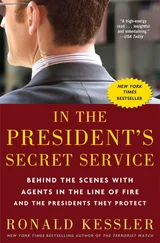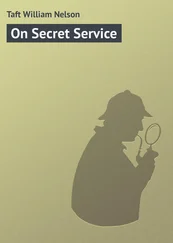William Fitzpatrick - Secret Service Under Pitt
Здесь есть возможность читать онлайн «William Fitzpatrick - Secret Service Under Pitt» — ознакомительный отрывок электронной книги совершенно бесплатно, а после прочтения отрывка купить полную версию. В некоторых случаях можно слушать аудио, скачать через торрент в формате fb2 и присутствует краткое содержание. Жанр: foreign_antique, foreign_prose, на английском языке. Описание произведения, (предисловие) а так же отзывы посетителей доступны на портале библиотеки ЛибКат.
- Название:Secret Service Under Pitt
- Автор:
- Жанр:
- Год:неизвестен
- ISBN:нет данных
- Рейтинг книги:5 / 5. Голосов: 1
-
Избранное:Добавить в избранное
- Отзывы:
-
Ваша оценка:
- 100
- 1
- 2
- 3
- 4
- 5
Secret Service Under Pitt: краткое содержание, описание и аннотация
Предлагаем к чтению аннотацию, описание, краткое содержание или предисловие (зависит от того, что написал сам автор книги «Secret Service Under Pitt»). Если вы не нашли необходимую информацию о книге — напишите в комментариях, мы постараемся отыскать её.
Secret Service Under Pitt — читать онлайн ознакомительный отрывок
Ниже представлен текст книги, разбитый по страницам. Система сохранения места последней прочитанной страницы, позволяет с удобством читать онлайн бесплатно книгу «Secret Service Under Pitt», без необходимости каждый раз заново искать на чём Вы остановились. Поставьте закладку, и сможете в любой момент перейти на страницу, на которой закончили чтение.
Интервал:
Закладка:
Turner and O'Coigly are mentioned in Hughes's information. They belonged to the same district organisation. After describing Teeling, Turner and Lowry working in concert in 1797, Hughes adds that priest Quigly or O'Coigly introduced him at that time to Baily and Binns. 41 41 Report of the Secret Committee , p. 31 . (Dublin, 1798.)
The paper revealed by Mr. Froude, now shown to be Turner's, and other letters from the same hand in the 'Castlereagh Papers,' show that the writer always felt a strong dislike to work with the 'Papists,' especially priests. 'Casey, the red-faced, designing Dublin priest,' was one of the leading men he met in Dublin, and whose 'prudence or cowardice' disgusted him. Immediately after O'Coigly's return to London we find the authorities on his track. The priest himself refers to an abortive attempt to arrest him by night at Piccadilly. 42 42 Life of the Reverend James Coigly , p. 28 . (London, 1798.) Halliday Collection, R.I.A., vol. 743.
Mr. Froude, dealing with this case, does not seem to have suspected that the arrival in London of Downshire's friend, at the time of the arrests at Margate, was other than accidental. Yet clearly it was business of no ordinary moment which brought him back to London at this time. It will be remembered that, panic-stricken and fearing death from the assassin's knife, he had returned to Hamburg in October 1797, ere an answer came from Pitt to the proposition of betrayal conveyed by Lord Downshire.
It happened that at this particular time [writes Mr. Froude] that Downshire's friend was in London, and Pelham (the Irish Secretary) knew it. If the 'friend' could be brought over, and could be induced to give evidence, a case could then be established against all the United Irish leaders. They could be prosecuted with certainty of conviction, and the secrets of the plot could be revealed so fully that the reality of it could no longer be doubted.
Most earnestly Camden 43 43 The Lord Lieutenant of Ireland.
begged Portland 44 44 The Home Secretary.
to impress on the 'friend' the necessity of compliance. 'Patriotism might induce him to overcome his natural prejudice.' If patriotism was insufficient, there was no reward which he ought not to receive. 45 45 Camden to Portland, March 1, 1798. English in Ireland , iii. 310.
Portland's answer was not encouraging: 'The friend,' he said, 'shall be detained. As to his coming over to you, I have reason to believe that there is not any consideration on earth which would tempt him to undertake it. He is convinced that he would go to utter destruction. Better he should stay here and open a correspondence with some of the principal conspirators, by which means you may be apprised of their intentions. If I could be satisfied, or if you would give it as your positive opinion that this person's testimony or presence would crush the conspiracy, or bring any principal traitor to justice, I should not, and Lord Downshire would not, hesitate to use any influence to prevail on his friend to run any risk for such an object. But if he should fail and escape with his life, he could render no further service. Weigh well, therefore, the consequence of such a sacrifice.' 46 46 Portland to Camden, March 7, 1798.
After describing the arrest at Margate of Father O'Coigly, O'Connor, and Binns, Mr. Froude writes: —
O'Connor wrote a hurried note to Lord Edward, telling him not to be alarmed, nothing having been taken upon them which compromised any individual. 47 47 In O'Connor's valise were found 900 l. , a military uniform, and some papers relating to Lord Edward Fitzgerald. – W. J. F.
The messenger to whom the note was entrusted was unfortunate or treacherous, for it fell into the hands of the Government. Had O'Connor known the connection between the Government and Lord Downshire's friend, he would have felt less confident. There was evidence, if it could only be produced, which would send both Lord Edward and himself to the scaffold.
It may be observed here — en parenthèse – that Downshire must have felt conflicting emotions when called upon to communicate information which might bring Lord Edward to the block. His father had married the sister of James, Duke of Leinster; Lord Edward was, therefore, the first cousin of Lord Downshire.
One of the most truthful chapters of the laudatory life of Reynolds, the informer, 48 48 Life of Thomas Reynolds , by his Son. (London, 1839.)
is that aiming to show that he could not have been the spy who caused the arrests at Margate. But the biographer is unable to offer any suggestion as to who that agent was – so carefully veiled from Reynolds, one of their own confidential prompters, was the part played by Turner in that episode.
The information which led to the arrest of O'Connor, O'Coigly, and his companion cannot have come from Ireland, because in the 'Book of Secret Service Monies expended in the Detection of Treasonable Conspiracies' no entry appears connected with the above incident, unless 'Dutton's Expenses going to England to attend Quigly's Trial,' and where he had merely to swear to the priest's handwriting. For his courage in doing this – having once seen him sign a lottery ticket at Dundalk – 50 l. is paid to 'Dutton on June 12, 1798.' The names of Newell and Murdoch certainly appear in the 'Secret Service Money' book about that time; but it is clear from Newell's narrative – doubtless a genuine and frank confession – that neither he nor Murdoch had any hand in tracing the movements of O'Coigly and O'Connor.
Lord Castlereagh was now acting for Pelham as Chief Secretary for Ireland. On July 25, 1798, a secret letter – printed in the 'Castlereagh Papers' – is addressed to him from the Home Office: —
I am directed by the Duke of Portland to inform your Lordship that I have received intelligence from a person very much in the confidence of [Reinhard] the French Minister at Hamburg , 49 49 For proofs of the intimacy between Reinhard and Turner at Hamburg, see Castlereagh Papers , i. 277 et seq. ; and my chapter on McNevin, infra .
that several French officers and soldiers have lately arrived at that place, where they have purchased sailor's dresses, clothed themselves in them, and gone on to Denmark and Sweden, from whence it is intended that they should embark for the North of Ireland. 50 50 In August, 1798, Humbert and 900 Frenchmen arrived in Killala Bay.
I know not what credit is to be given to this information, which must be received with caution, as it does not appear to have reached his Majesty's Minister at Hamburg.
It comes, however, from a person 51 51 'The person' is the name by which Downshire's friend, the betrayer, is usually styled in the letters from the Home Office to Dublin Castle. The words, 'while he was in this country,' show that he had left England, as Downshire's friend admittedly did, in panic.
whose reports while he was in this country 52 52 ' I.e. in October 1797, when he called upon Downshire; and again in March 1798, when Portland offered him large sums if he would openly prosecute.'
were known to his Excellency as singularly accurate and faithful — the same who gave such an accurate account of the proceedings of O'Connor and Coigly whilst they were in this country, and on whose authority those persons were apprehended. 53 53 Mr. Lecky describes this arrest, and rather suggests that it may have been due to Higgins in Dublin ( vide viii. 55). The above evidence points surely to the Hamburg spy.
Some of the letters of 'Lord Downshire's friend,' not being forthcoming in the official archives, Mr. Froude assumed that they had been destroyed; but, however masked, they are recognisable in the 'Castlereagh Correspondence.' Several anonymous papers, furnishing information of the movements of the United Irishmen about Hamburg and elsewhere, crop up in that book, having been enclosed from Whitehall for the guidance of Dublin Castle. One of these letters makes special reference to information already sent to Lord Downshire. 54 54 See Castlereagh Papers , i. 231-6.
Интервал:
Закладка:
Похожие книги на «Secret Service Under Pitt»
Представляем Вашему вниманию похожие книги на «Secret Service Under Pitt» списком для выбора. Мы отобрали схожую по названию и смыслу литературу в надежде предоставить читателям больше вариантов отыскать новые, интересные, ещё непрочитанные произведения.
Обсуждение, отзывы о книге «Secret Service Under Pitt» и просто собственные мнения читателей. Оставьте ваши комментарии, напишите, что Вы думаете о произведении, его смысле или главных героях. Укажите что конкретно понравилось, а что нет, и почему Вы так считаете.












